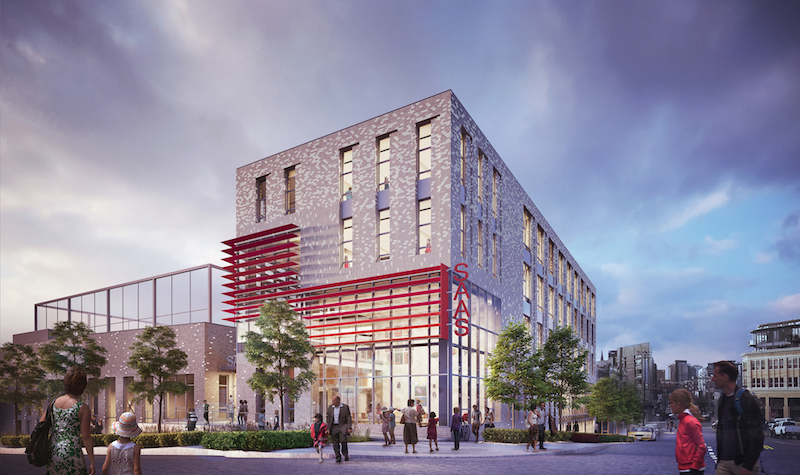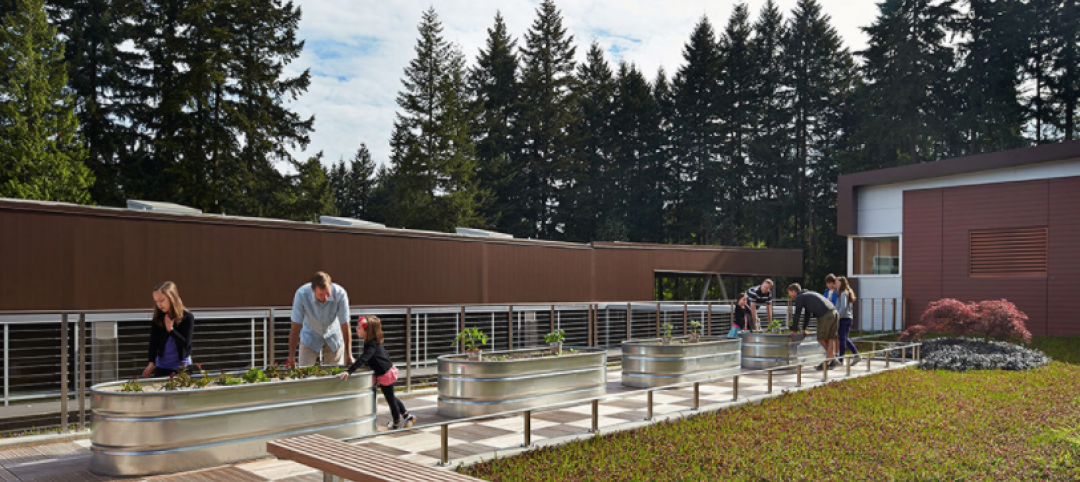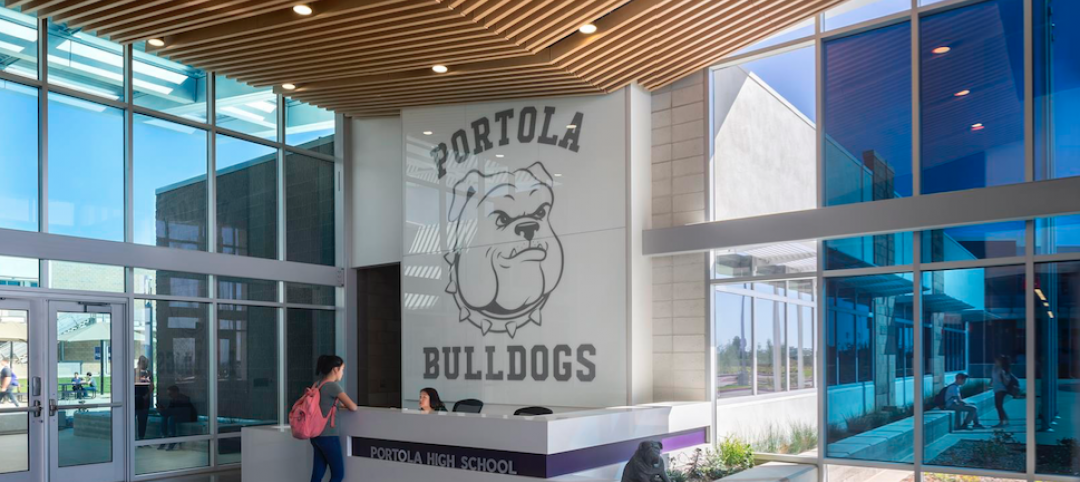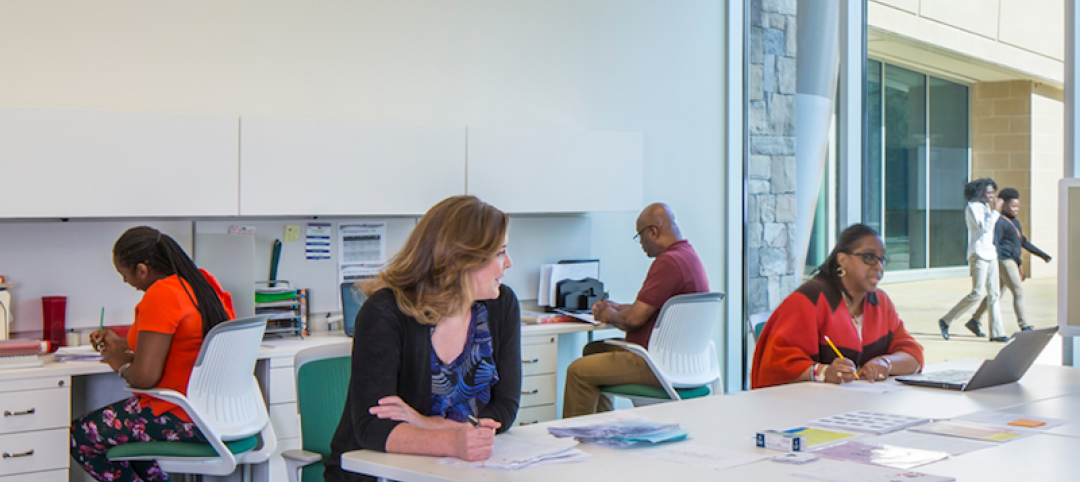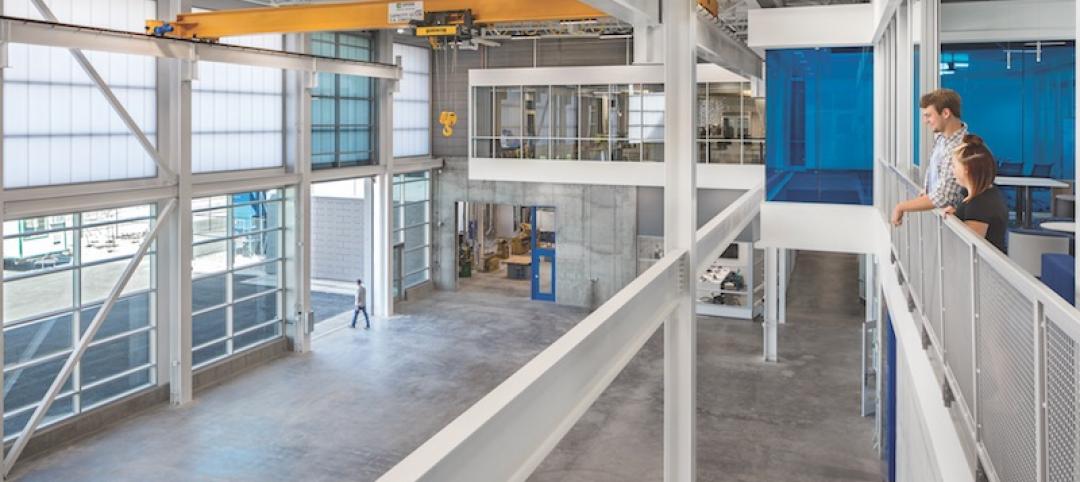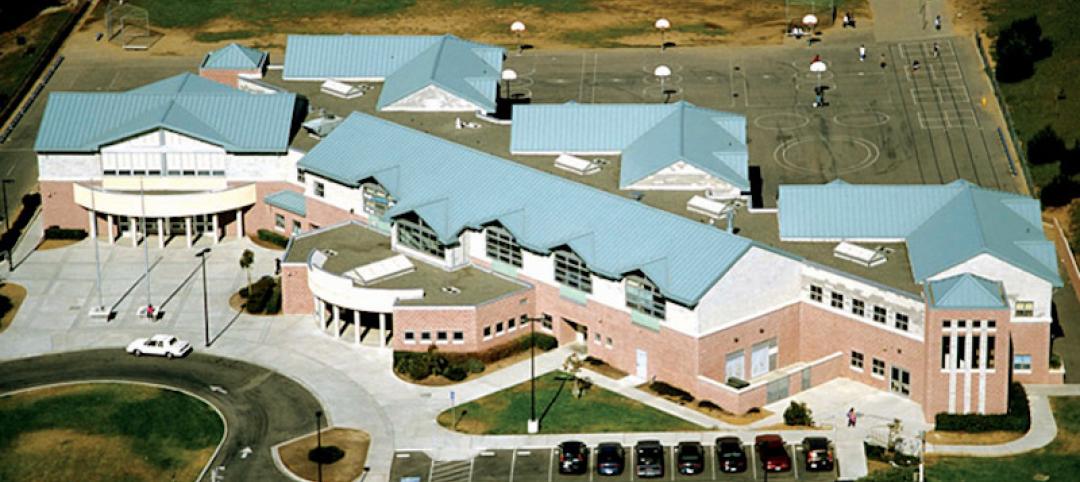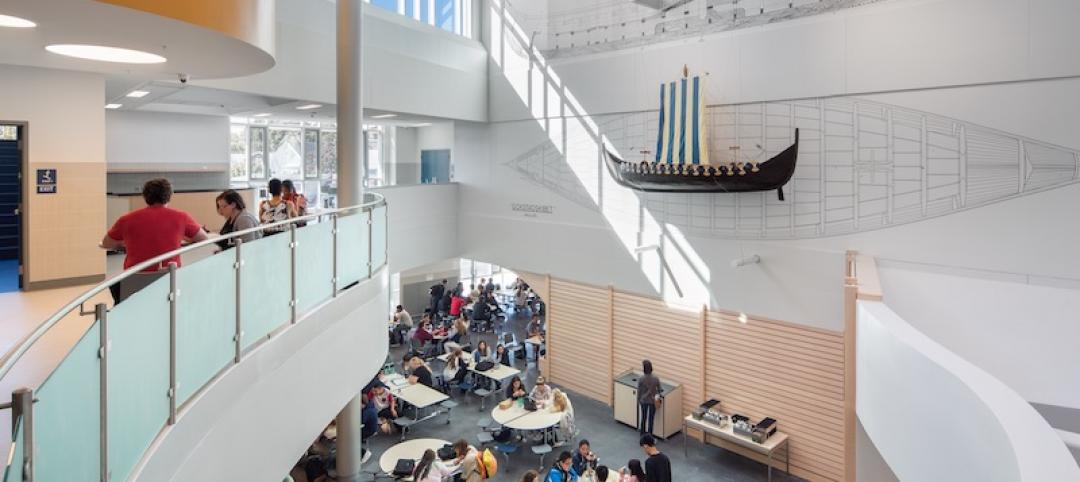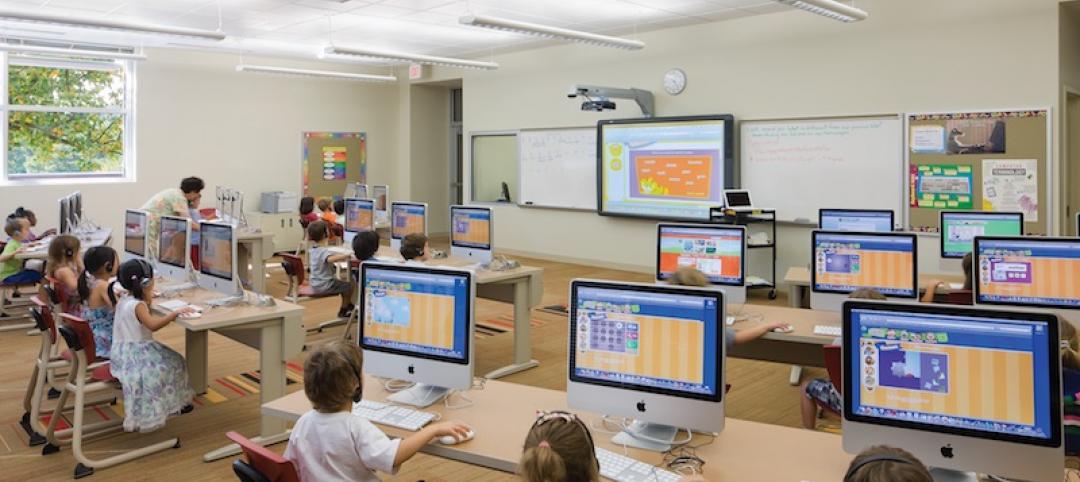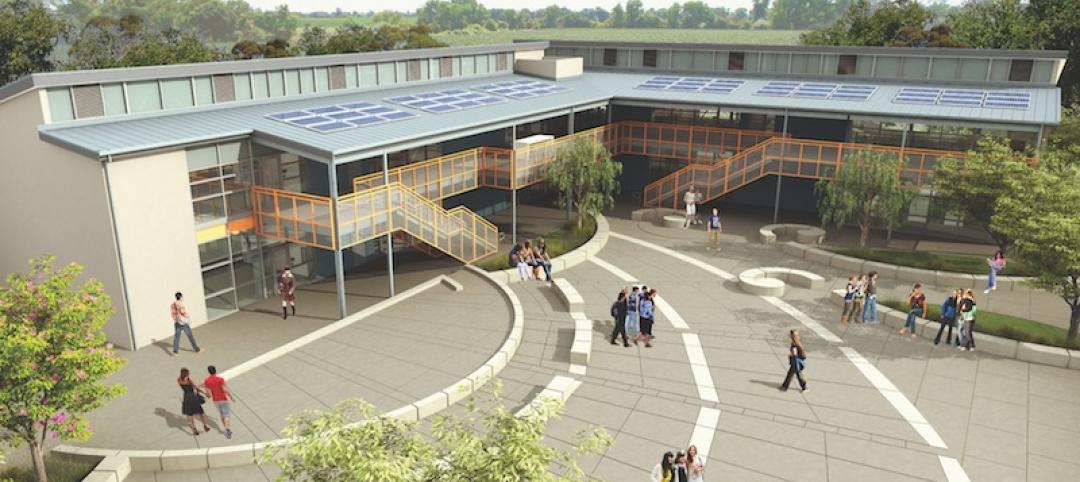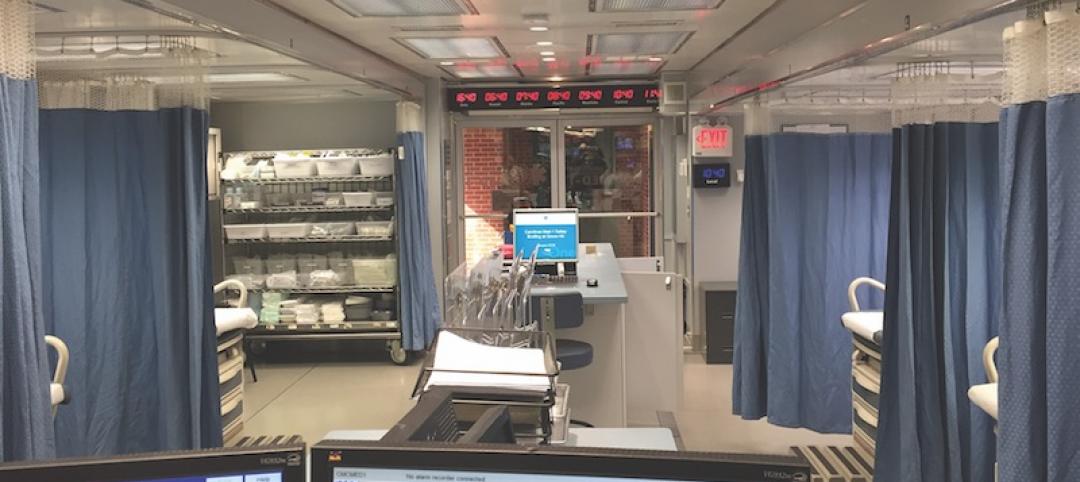It may not rise to the heights of the 30-story school building made famous in the Wayside School children’s books, but the new Cardinal Union building will be Seattle’s first vertically-oriented middle school once it completes in 2018.
Cardinal Union, designed by LMN Architects, will be the new home for the middle school at the Seattle Academy of Arts and Sciences (SAAS). The structure is being built in the Capitol Hill neighborhood and will provide spatial flexibility, contemporary classrooms, and purpose-built science labs across its 74,289 sf floor plan.
A five-story classroom bar will relate in scale to the mixed-use commercial and residential core along the Union and Madison Street arterials, while a gymnasium building will mirror the smaller neighborhood context located along 13th Avenue. A rooftop playfield will cap the gym and another outdoor area will be located at the building’s main entry to provide a space for students to gather and collaborate.
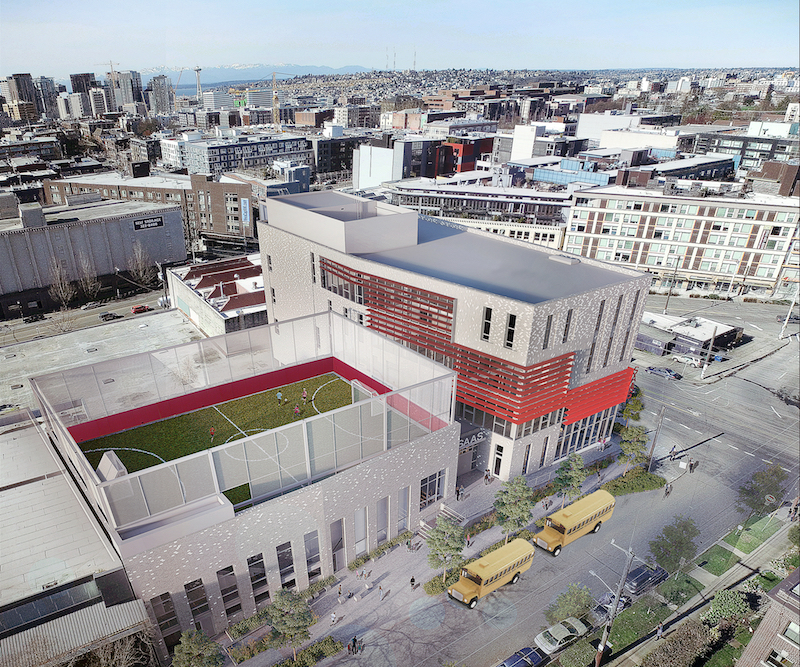 Rendering courtesy LMN Architects.
Rendering courtesy LMN Architects.
Reminiscent of its fictitious Wayside counterpart, each floor of the new Cardinal Union building will accommodate one grade. The classrooms will be organized around flexible community learning spaces. Theses learning spaces will be a series of double-height, stepped interior volumes that encourage physical and visual connectivity.
The exterior of the building will feature a combination of gray and cream bricks that will fade from dark to light vertically along the façade. Red metal sunshades will add color to the design and expanses of glass will reveal the student activity occurring within.
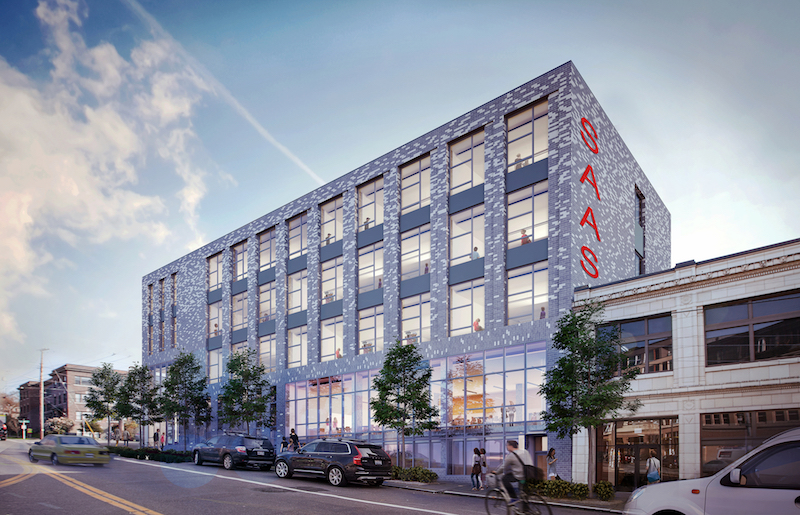 Rendering courtesy LMN Architects.
Rendering courtesy LMN Architects.
Sustainability is also paramount to the building’s design. Building analysis modeling was used to optimize daylight, solar exposure, and natural ventilation. Natural ventilation strategies, a highly efficient mechanical system, and a high performance envelope result in a projected 45% reduction in annual carbon emissions when compared to similar buildings. A solar panel array will be incorporated on the main building roof and a future-compatible rainwater collection system is also included into the building design. Web-based dashboards will provide instantaneous feedback to students and faculty on solar production, building performance, and water conservation.
Build Team: GLY Construction (general contractor), Swift Company (landscape architect), PAE Engineers (MEP).
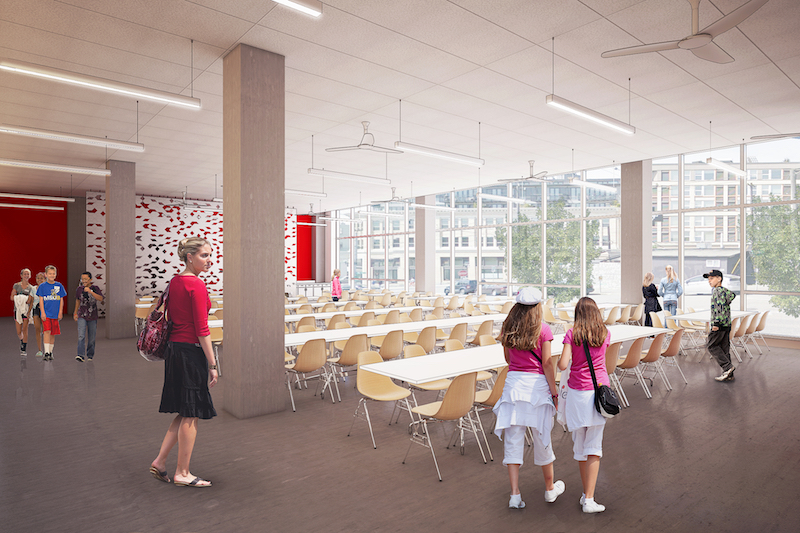 Rendering courtesy LMN Architects.
Rendering courtesy LMN Architects.
Related Stories
K-12 Schools | Mar 9, 2017
The future of education facilities: Creating spaces where learning happens everywhere
The art of designing schools lies not in just understanding what makes a functional classroom, but in how successful we are in creating a wide array of educational options for teachers and students within the school environment.
K-12 Schools | Mar 9, 2017
School branding: The impact on identity and engagement
What is school branding and why is it important? HMC Architects’ James Krueger and Barbara Perez weigh in on the topic.
K-12 Schools | Feb 22, 2017
Through the principal's eyes: A look at K-12 architecture
Anderson-Livsey is a K-5 school located about 30 minutes East of Atlanta in Gwinnett County and has an enrollment of 785 students.
K-12 Schools | Feb 8, 2017
'Fabrication Hall' introduces Wyoming high school students to career paths
The hall offers bountiful natural light with enough space to build large-scale projects.
Architects | Jan 19, 2017
Harley Ellis Devereaux merges with Deems Lewis McKinley
The combination is expected to bolster HED’s presence in northern California and the K-12 sector.
K-12 Schools | Dec 14, 2016
Expanding possibilities for America's K-12 schools
Bigger buildings, more outdoor space, and greater involvement from the private sector are among the trends marking the new generation of schools.
K-12 Schools | Dec 12, 2016
Building a nation of super schools
AEC teams are being asked to design and build schools with enough flexibility to adapt to changing pedagogies.
School Construction | Oct 23, 2016
As construction rebounds, education sector spending flattens
Post-recession slump suggests a settling in at a “normal” level similar to the mid aughts.
Great Solutions | Aug 23, 2016
Novel construction approach speeds K-12 school projects
The Folia system uses pre-engineered components to deliver school buildings at 20% less cost.
Great Solutions | Aug 23, 2016
11 great solutions for the commercial construction market
A roll-up emergency department, next-gen telemedicine center, and biophilic cooling pods are among the AEC industry’s clever ideas and novel innovations for 2016.


